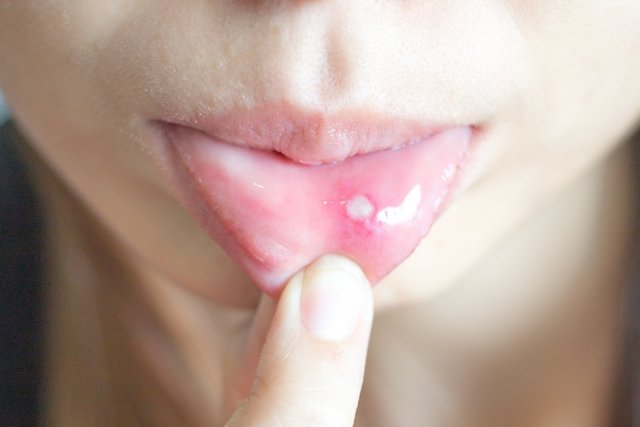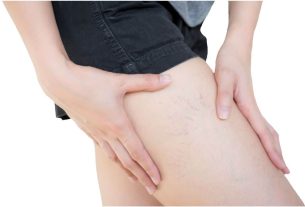Canker sores are small lesions that can appear in the mouth, tongue or throat and make speaking, eating and swallowing very uncomfortable.
The cause for the appearance of frequent mouth ulcers is not yet well understood, but some situations may favor their appearance, such as low immunity, consumption of very acidic foods or use of dental appliances, for example.
Furthermore, taking some medications, stressful situations, gastric problems and increased stomach acidity can also cause mouth ulcers.

7 causes of frequent canker sores
The main causes of frequent canker sores are:
1. Use of dental braces
It is normal for mouth ulcers to appear when orthodontic braces are placed due to small traumas that occur due to friction between the braces and the mouth mucosa. Despite causing great discomfort, oral hygiene should not be interrupted.
What to do: It is recommended to go to the dentist so that the appearance of the cold sore can be associated with the use of braces. The doctor may recommend using protective resins or waxes to properly clean the lesion, thus avoiding infections.
Don’t ignore the signs your body is giving you!
2. Nutritional deficiencies
Deficiencies in zinc, iron, folate and vitamin B12 can promote the appearance of canker sores. Understand what vitamin B12 is for.
What to do: To meet the daily need for zinc, iron, folate and vitamin B12, it is important to consume more foods of animal origin, such as meat, milk and eggs, for example, with the guidance of a nutritionist.
3. Genetics
When family members have canker sores, it is likely that they will also develop canker sores throughout their lives, as there is a genetic predisposition.
What to do: There is no way to control genetic factors, but there are ways to reduce the chances, such as avoiding eating acidic fruits, such as pineapple, and spicy foods, as they can irritate the lining of the mouth and facilitate the appearance of canker sores. Learn 5 infallible tips for curing canker sores.
4. Tongue or cheek biting
Bites on both the tongue and cheek can promote the appearance of canker sores, which can make simple actions, such as speaking, swallowing and chewing, difficult and painful.
What to do: To care for canker sores, ointments can be applied to the area, such as Omcilon, or you can rinse your mouth with barbatimão tea, as this plant has antiseptic and healing properties. See what are the best homemade ways to treat cold sores.
5. Psychological factors
Stress and anxiety, for example, can reduce the functions of the immune system, increasing the chances of infection. Furthermore, there may be dryness of the mouth mucosa, which may favor the appearance of canker sores.
What to do: It is important to look for ways to control stress and anxiety, such as resting and exercising. See the 7 steps to control stress.
6. Celiac disease
Celiac disease is a gastrointestinal disorder characterized by gluten intolerance. Celiac disease does not cause mouth ulcers, but it can be a sign of the disease and should be treated.
What to do: When the symptoms of celiac disease are identified, it is important to see a nutritionist to establish a gluten-free diet. Learn how to identify and treat celiac disease.
7. AIDS
As with celiac disease, canker sores can be an indication of AIDS, however, in this disease canker sores are more frequent, larger and take a long time to heal, as the immune system is compromised.
What to do: At the first symptoms of AIDS, it is important to seek guidance from an infectious disease specialist or general practitioner so that treatment can be started immediately. Find out what the main symptoms of AIDS are and how treatment is carried out.
When to go to the doctor
It is important to see a doctor when:
- The canker sores are very large;
- The appearance of canker sores is very common;
- Canker sores take time to disappear;
- Lesions begin to appear on the lips;
- The pain when swallowing or chewing does not go away even with the use of painkillers.
When any of these symptoms appear, it is important to go to the doctor so that the cause can be identified and treatment can be started, as it could mean more serious conditions such as Crohn’s Disease, Irritable Bowel Syndrome and even AIDS.
How to permanently eliminate canker sores
Generally, canker sores disappear naturally in about 1 to 2 weeks, however, using home remedies can speed up their healing. Some examples are:
- Rinse your mouth with warm water and salt about 3 times a day, as salt has antiseptic properties, keeping the cold sore area clean and accelerating healing. To make this home remedy, simply add 1 teaspoon of coarse salt to 1 glass of warm water and stir well;
- Place a piece of ice on cold sore helps relieve pain and inflammation;
- Apply a little honey on the cold sore with the help of a cotton swab, as honey has a healing effect.
Furthermore, it is important to avoid eating acidic or spicy foods until the cold sore has disappeared, such as lemon, kiwi and tomato, for example, and rinse your mouth with a mouthwash every day and maintain good oral hygiene daily.

Sign up for our newsletter and stay up to date with exclusive news
that can transform your routine!
Warning: Undefined array key "title" in /home/storelat/public_html/wp-content/plugins/link-whisper-premium/templates/frontend/related-posts.php on line 12
Warning: Undefined array key "title_tag" in /home/storelat/public_html/wp-content/plugins/link-whisper-premium/templates/frontend/related-posts.php on line 13



